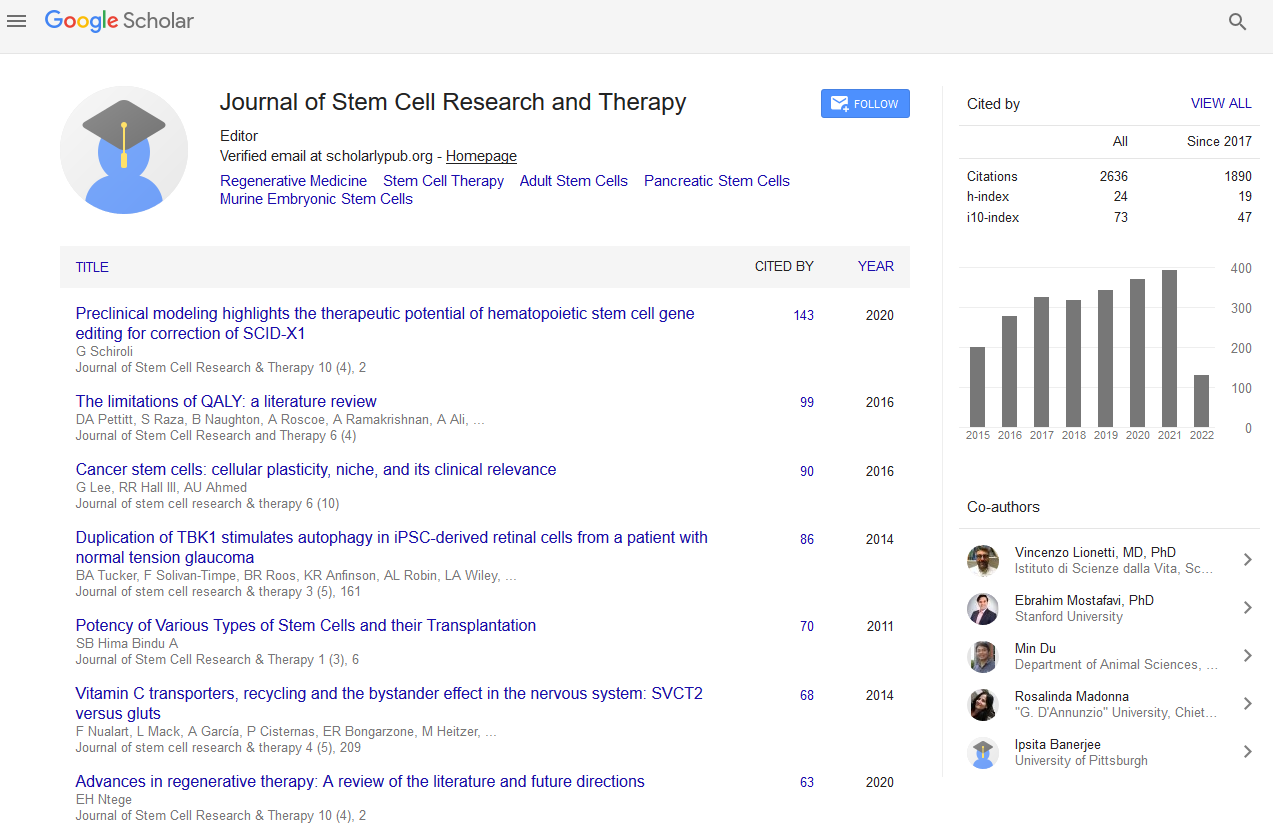Indexed In
- Open J Gate
- Genamics JournalSeek
- Academic Keys
- JournalTOCs
- China National Knowledge Infrastructure (CNKI)
- Ulrich's Periodicals Directory
- RefSeek
- Hamdard University
- EBSCO A-Z
- Directory of Abstract Indexing for Journals
- OCLC- WorldCat
- Publons
- Geneva Foundation for Medical Education and Research
- Euro Pub
- Google Scholar
Useful Links
Share This Page
Journal Flyer

Open Access Journals
- Agri and Aquaculture
- Biochemistry
- Bioinformatics & Systems Biology
- Business & Management
- Chemistry
- Clinical Sciences
- Engineering
- Food & Nutrition
- General Science
- Genetics & Molecular Biology
- Immunology & Microbiology
- Medical Sciences
- Neuroscience & Psychology
- Nursing & Health Care
- Pharmaceutical Sciences
Abstract
Cell Therapy in Type 1 Diabetes
Maria Concetta Gioviale, Maurizio Bellavia, Giuseppe Damiano and Giuseppe Buscemi
The incidence of diabetes mellitus has grown exponentially in the last few years. Etiopathogenesis of diabetes implies a ?-cells damage in the islet of Langerhans, either through an autoimmune reaction present in type 1 diabetic patients or through altered function within these cells that affect their ability to secrete a properly functioning insulin hormone, in patients suffering from type 2 diabetes. Exogenous insulin supply is, at the moment, the therapy of choice of the disease but it does not allow tight control of glucose regulation, leading to long-term complications. Over the past few decades, pancreas or pancreas-kidney organ transplantation has been the most effective treatment for severe diabetic patients. Recently, an alternative promising therapeutic approach, consisting of successful pancreatic islet transplantation to reconstitute the insulin producing ? cells, has also emerged. Unfortunately the number of donor islets is too low compared to high number of patients needing a transplant, so the search for new renewable sources of high-quality ?-cells becomes highly topical. In this review, starting from the description of state of art of islet transplantation, we summarize the more recent promising approaches to the generation of new ?-cells giving a big enfacy to adult stem/progenitor cells.


